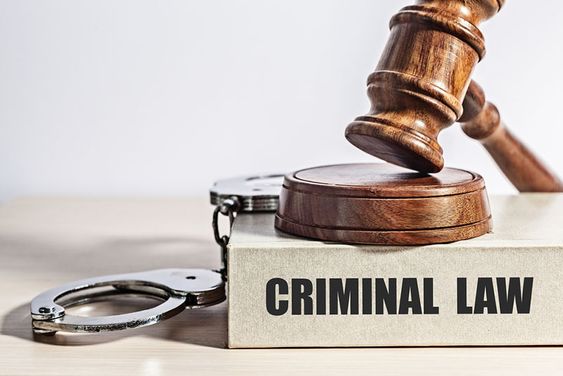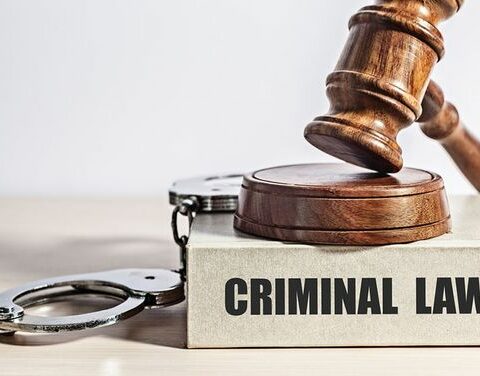Economic offences refer to a category of offenses that involve the violation of laws governing financial, commercial, or economic activities, and which typically lead to economic damage or unlawful benefit. These crimes often relate to fraudulent, deceptive, or illegal practices in business or trade. The Economic Offenses Act (WED) and similar legislation are designed to address such violations by establishing legal standards for the investigation, prosecution, and punishment of economic crimes. Economic crimes include, but are not limited to, fraud, embezzlement, money laundering, insider trading, tax evasion, and market manipulation. The goal of this legal framework is to protect the integrity of economic systems, ensure fair competition, and safeguard the rights of individuals and organizations affected by such crimes.
Definition and Scope of Economic Crimes under the WED
The WED covers a wide range of economic crimes that impact various aspects of society. The law is intended to prosecute offenses that undermine the functioning of the economy, endanger public welfare, and violate regulatory standards. Under the law, economic crimes are categorized into several key areas, including environmental regulations, financial crimes, labor conditions, food safety, and competition laws. This legal instrument provides a comprehensive framework that allows authorities to address crimes ranging from illegal waste disposal and pollution to fraud, money laundering, and violations of labor and market standards.
Environmental Regulations and Their Impact
One of the key areas addressed by the WED is violations of environmental regulations. Crimes in this category include illegal waste disposal and pollution, which have far-reaching consequences for both public health and natural ecosystems. For example, when a company dumps toxic waste into a river, it not only violates environmental protection laws but also jeopardizes aquatic life and contaminates water sources. Moreover, violations related to environmental protection standards, such as exceeding permitted emission levels, illustrate the crucial need for strict oversight and enforcement to protect natural resources and promote sustainable development.
Financial Crimes: Fraud, Money Laundering, and Tax Evasion
Financial crimes constitute another important segment under the WED, encompassing fraudulent activities aimed at obtaining unlawful financial benefits. Fraud, in this context, involves deceptive practices such as falsifying investment reports or embezzling client funds. Additionally, the law addresses money laundering, where individuals or organizations use complex schemes to conceal the origins of illegally obtained money. Tax evasion is also a key focus, as businesses or individuals intentionally underreport their income to avoid tax obligations. Together, these financial crimes destabilize economic systems and undermine public trust in financial institutions and regulatory frameworks.
Labor Conditions and Violations of Workplace Safety
The WED also extends to crimes that violate labor laws and workplace safety standards. These include violations of regulations that require a safe working environment and fair labor practices. For instance, employers who fail to provide adequate safety equipment or do not adhere to established safety protocols not only endanger the health and lives of their employees but also face severe legal consequences. Additionally, violations concerning labor standards—such as paying wages below the legally mandated minimum—disrupt fair labor practices and can lead to broad socio-economic disturbances.
Food Safety and Food Fraud
Ensuring the safety and integrity of the food supply is another critical aspect of economic crimes under the WED. Food safety violations occur when producers fail to adhere to established standards for production, processing, and distribution. Such violations can lead to the sale of contaminated products, posing significant health risks to consumers. Furthermore, food fraud—where products are intentionally misrepresented or mislabeled, such as selling non-organic products as organic—undermines consumer confidence and disrupts fair market practices. Strict enforcement of food safety regulations is therefore essential to protect public health and maintain market integrity.
Competition Laws and Violations of Market Regulation
Anti-competitive practices and violations of market regulations are also covered by the WED. These crimes include activities that disrupt fair competition, such as price-fixing between companies or the abuse of dominant market positions. Such practices not only distort market dynamics but also harm consumers by limiting choice and driving up prices. By imposing legal sanctions on anti-competitive behavior, the WED aims to maintain a level playing field in the market, allowing all entities to compete fairly and ensuring that consumers’ interests are sufficiently protected.
Criminal Enforcement: The Role of the Public Prosecutor’s Office
The criminal enforcement of economic crimes under the WED is led by the Public Prosecutor’s Office (OM). The OM is responsible for determining whether there is sufficient evidence to initiate criminal proceedings and for representing the state in legal proceedings against offenders. This agency plays a crucial role in presenting cases in court, gathering and presenting evidence, and ensuring that justice is served. Through close cooperation with specialized investigative agencies, the OM ensures that complex economic crimes are rigorously prosecuted, thereby strengthening the deterrent effect of the legal system.
Investigation and Detection: Specialized Enforcement Agencies
The detection and investigation of economic crimes are carried out by a range of specialized enforcement agencies that operate both within the Netherlands and in collaboration with international partners. The Fiscal Intelligence and Investigation Service (FIOD) is a key player, conducting detailed financial investigations and gathering crucial evidence through methods such as forensic analysis and targeted raids. Other agencies, such as the Dutch Food and Consumer Product Safety Authority (NVWA) and the Dutch Authority for Consumers and Markets (ACM), focus on specific sectors, overseeing compliance with food safety and competition regulations. This coordinated network of agencies is essential for uncovering complex financial crimes and other economic offenses that often span multiple regulatory domains.
Penalties, Sanctions, and Administrative Enforcement Measures
Penalties for violations under the WED are both punitive and preventive in nature. Offenders may face heavy fines, imprisonment, revocation of licenses, and even the seizure of assets. For example, a company found guilty of large-scale fraud may have its illicit profits confiscated, thereby reducing the financial incentive for such behavior. In addition to criminal sanctions, administrative enforcement measures play an important role in addressing economic crimes. Regulatory bodies have the authority to impose administrative fines and require corrective actions, forcing non-compliant entities to take immediate steps to rectify their violations.
Challenges in Enforcing Economic Crimes
Enforcing economic crimes under the WED faces several challenges stemming from the complexity of regulatory frameworks and the ever-evolving nature of economic offenses. A major challenge is the detailed and multifaceted nature of the legislation, which often requires specialized expertise to interpret and apply effectively. Additionally, many economic crimes have cross-border dimensions, necessitating extensive international cooperation and legal harmonization between jurisdictions. Resource limitations, such as personnel and funding, also hinder enforcement, particularly when investigating complex financial crimes or cross-border money laundering schemes.
Legislative Frameworks: National and EU Instruments
The legislative landscape governing economic crimes is both robust and dynamic, encompassing a mix of national and European instruments. In the Netherlands, the WED is supported by other key laws regulating environmental, labor, and market behavior. At the European level, directives and regulations such as the EU Directive on Environmental Liability, the Waste Framework Directive, and various competition laws help harmonize enforcement across member states. These legal instruments work together to create a comprehensive framework that not only sets high standards for economic conduct but also facilitates effective cross-border enforcement of economic crimes.
Responsible Authorities and Joint Enforcement
A multitude of responsible authorities is involved in enforcing the WED, with each agency deploying its specialized expertise for various aspects of economic crimes. The Public Prosecutor’s Office (OM) leads criminal enforcement efforts, while agencies such as the FIOD, NVWA, ACM, AFM, and the Labour Inspectorate (Inspectie SZW) provide essential investigative and regulatory oversight. Additionally, bodies like the Human Environment and Transport Inspectorate (ILT) and the Netherlands Gambling Authority (Ksa) strengthen the regulatory landscape by ensuring compliance within their respective sectors. The combined efforts of these agencies, both nationally and in cooperation with international partners, are critical in addressing the complex and interconnected challenges posed by economic crimes.



